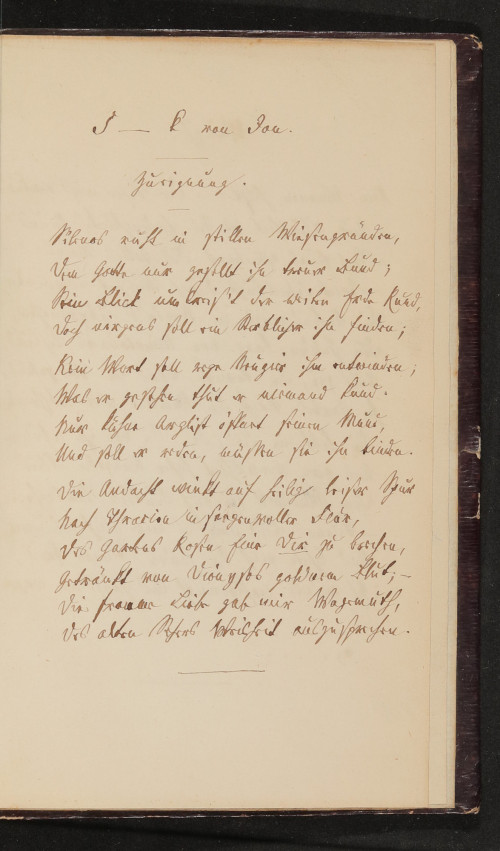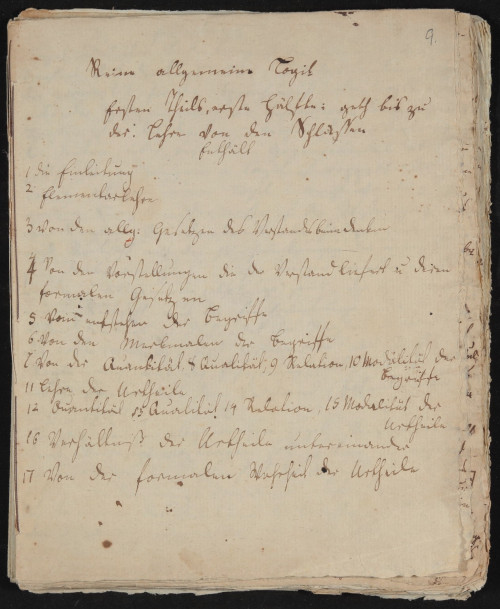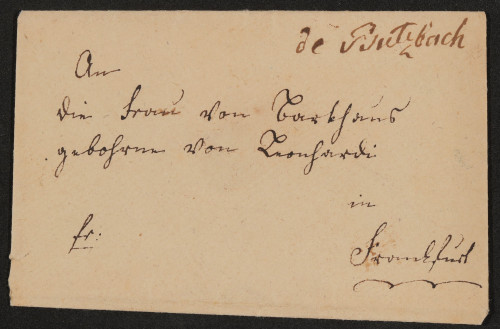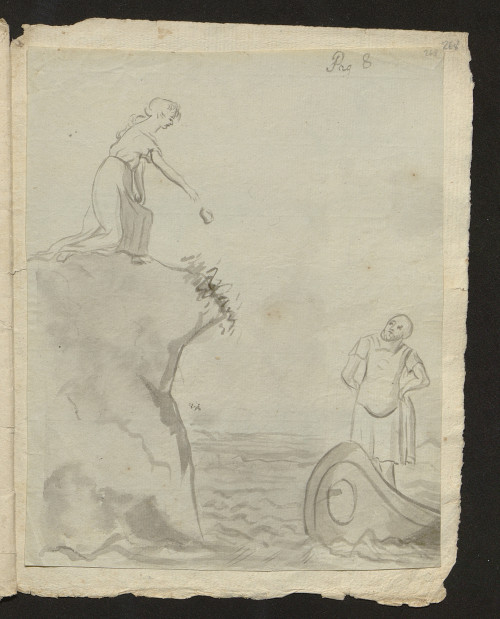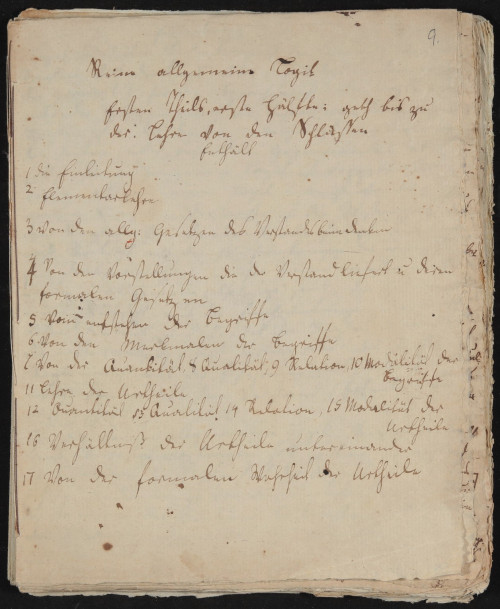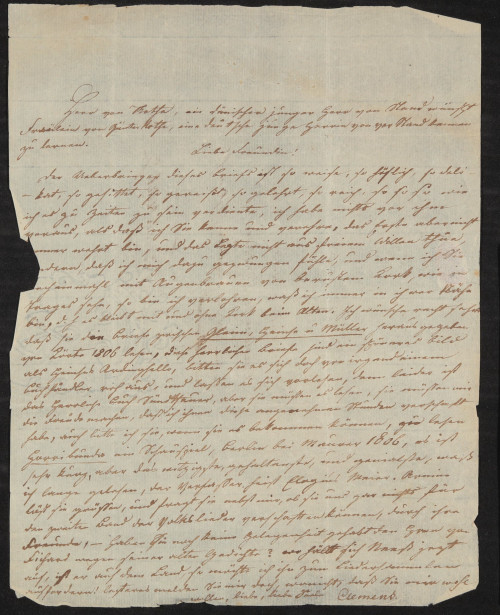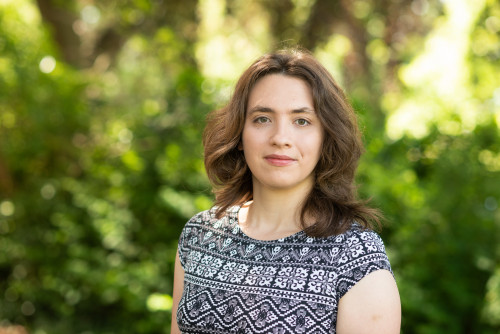Archive
Karoline von Günderrode is regarded as one of the most important female writers in Romanticism. Her literary and philosophical work is relatively slight in size, but it is unusual in its thematic range and the lyric poetry in particular is formally diverse. The two collections by Günderrode that were published in her lifetime – Gedichte und Phantasien [Poems and Fantasies] and Poetische Fragmente [Poetic Fragments] contain, among other texts, poems inspired by Ossian, the fictional Bardic poet, as well as philosophical prose such as Ein apokaliptisches Fragment [An Apocalyptic Fragment] and Die Manen [The Manes]. Her final collection, Melete, which was not published on account of her death, is distinctive because of how it mixes elements from different cultures and also because of its poetological reflections. Günderrode’s probably most significant – and extensive – text, the drama Mahomed, der Prophet von Mekka [Mahomed, the Prophet of Mecca], is an ambitious attempt to re-think religion around 1800. Günderrode addresses in her work, therefore, the significant religious, philosophical, and political issues of her time.
In addition, Günderrode developed a significant interest in the philosophy of German Idealism. She was particularly enthused by Friedrich Schelling’s philosophy of nature. Günderrode also wrote her own philosophical texts, such as the metaphysical and cosmological text, Jdee der Erde [Idea of the Earth]. This aspect of her work has become the subject of academic research only over the past couple of years.
